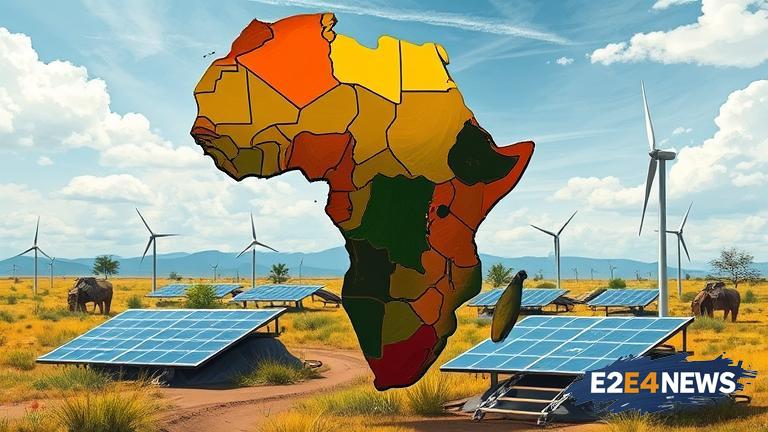The African continent is witnessing a significant shift towards renewable energy, driven by the need to address the pressing issues of energy access, energy security, and climate change. With a growing population and increasing economic activities, the demand for energy in Africa is on the rise. However, the continent’s reliance on fossil fuels has led to concerns about greenhouse gas emissions and their impact on the environment. In response, many African countries are now exploring alternative energy sources, such as solar, wind, hydro, and geothermal power. The cost of renewable energy technologies has decreased dramatically over the years, making them more competitive with fossil fuels. This has led to an increase in investments in the renewable energy sector, with many international companies and organizations committing to support the development of renewable energy projects in Africa. The African Union’s Agenda 2063 has set a target of ensuring that at least 50% of the continent’s energy mix comes from renewable sources by 2030. To achieve this goal, many countries are implementing policies and regulations to support the growth of the renewable energy sector. For example, South Africa has set a target of generating 42% of its electricity from renewable sources by 2030, while Kenya aims to increase its renewable energy capacity to 70% of its total energy mix by 2030. The development of renewable energy projects is also creating new job opportunities and stimulating local economies. In addition, renewable energy can help to reduce energy poverty, which is a major challenge in many African countries. According to the International Energy Agency (IEA), sub-Saharan Africa has the highest percentage of people without access to electricity, with over 600 million people living without power. Renewable energy can help to address this issue by providing energy access to remote and off-grid communities. Furthermore, the use of renewable energy can also help to reduce the burden on traditional energy sources, such as coal and gas, which are finite resources. The transition to renewable energy is also expected to have a positive impact on public health, as it will reduce air pollution and greenhouse gas emissions. Many African countries are also exploring the potential of green financing to support the development of renewable energy projects. Green financing refers to the use of financial instruments and investments that support environmentally friendly projects. The African Development Bank has launched a number of initiatives to support the growth of the renewable energy sector, including the creation of a $500 million fund to support the development of renewable energy projects. The bank has also partnered with international organizations, such as the International Renewable Energy Agency (IRENA), to provide technical assistance and support to African countries. In conclusion, the renewable energy revolution in Africa is gaining momentum, driven by the need to address the pressing issues of energy access, energy security, and climate change. With the right policies, regulations, and investments, the continent can unlock its vast renewable energy potential and create a sustainable energy future. The development of renewable energy projects is expected to have a positive impact on the environment, public health, and local economies, and will help to reduce energy poverty and promote economic growth. As the continent continues to transition towards a low-carbon economy, it is likely that renewable energy will play an increasingly important role in the energy mix. The use of renewable energy will also help to reduce the continent’s dependence on fossil fuels, which are finite resources. Overall, the future of renewable energy in Africa looks promising, with many opportunities for growth and development. The continent’s renewable energy potential is vast, and with the right support and investments, it can be unlocked to create a sustainable energy future. The African Union’s Agenda 2063 has set a clear vision for the continent’s energy future, and it is now up to individual countries to implement the necessary policies and regulations to support the growth of the renewable energy sector.
